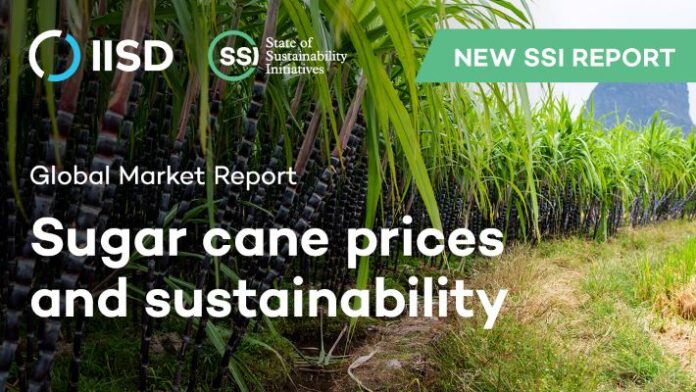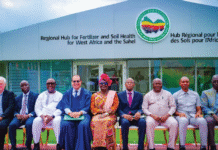Sugar cane is considered one of the most valuable agricultural commodities in the world and provides livelihoods for more than 100 million people in 120 countries. But many sugar cane farmers in developing countries live in poverty—and initiatives aimed at supporting them are falling short of their potential.
A new report from the International Institute for Sustainable Development (IISD) explores recent market trends in the sugar cane sector, what these trends mean for producers in developing countries, and what voluntary sustainability standards (VSSs), governments, and private sector actors can do to improve farmers’ incomes.
It finds that the prices that farmers get for their sugar cane vary greatly from country to country, given it is one of the world’s most heavily regulated industries. Almost all producing and exporting countries have implemented minimum price mechanisms for domestic and exported cane sugar and use measures such as subsidies or import duties to protect the competitiveness of their local industries and insulate their domestic markets from global price fluctuations.
“Smallholder farmers and mills in developing countries that do not have the capacity to put domestic pricing regulations in place are more vulnerable,” said Steffany Bermúdez, Policy Advisor, IISD. “They are not protected from fluctuations in international cane sugar prices and can’t compete with farmers in countries that have strong government support. On top of that, many also lack adequate agricultural inputs, negotiating power, and access to much-needed financial support.”
Sugar cane farmers also have to contend with a wide range of sustainability challenges, including crop losses caused by climate change, pests and diseases, biodiversity loss, and water depletion. In recent years, they have had to cope with additional challenges brought on by the COVID-19 pandemic and ongoing global economic uncertainty, such as drops in demand and soaring fertilizer and labour costs.
VSSs such as Bonsucro, ProTerra Foundation, and Fairtrade International have been working for over a decade in the sector. They seek to overcome some of these challenges by setting sustainability requirements for sugar cane farmers and mills to meet in exchange for certifying their produce as VSS-compliant and gaining market recognition.
“VSS-compliant sugar cane represented almost 8% of total global production in 2019, growing at a compound annual growth rate of about 46% since 2008,” said Vivek Voora, Senior Associate, IISD. “More than 37,000 farmers produced at least 136 million tonnes of VSS-compliant sugar cane in 2019. If trends continue, it’s possible that figure could double by 2025.”
While demand for cane sugar is falling overall, largely due to public health policies aimed at promoting healthier diets, demand for VSS-compliant sugar cane in the sustainable production of biofuels is growing. This is largely due to European regulations that recognize VSS-compliant sugar cane as an acceptable feedstock for producing sustainable biofuels.
However, evidence of the effects of VSSs on farmers’ prices and incomes is limited. IISD’s analysis suggests that in 2019, sugar cane producers in Brazil, India, and Thailand who complied with Fairtrade International may have received prices up to 13% higher when receiving premiums—rising to 20% higher if they also complied with Organic. However, certified producers selling their produce through Bonsucro’s credit platform did not receive significantly higher prices than non-certified producers.
Additionally, despite increasing demand for VSS-compliant cane sugar, it remains lower than supply, so many sugar cane farmers face difficulties accessing markets for certified produce. For example, in 2018, only a quarter of Bonsucro-certified cane sugar was sold as compliant with the scheme, rising to nearly a third in 2020. If farmers don’t sell their produce as VSS compliant, they don’t receive higher prices or premiums for it, and they may not be able to maintain certification.
The report concludes by providing recommendations for how governments, private sector actors, and standard-setting bodies can work together to make sugar cane production fairer and more sustainable.









